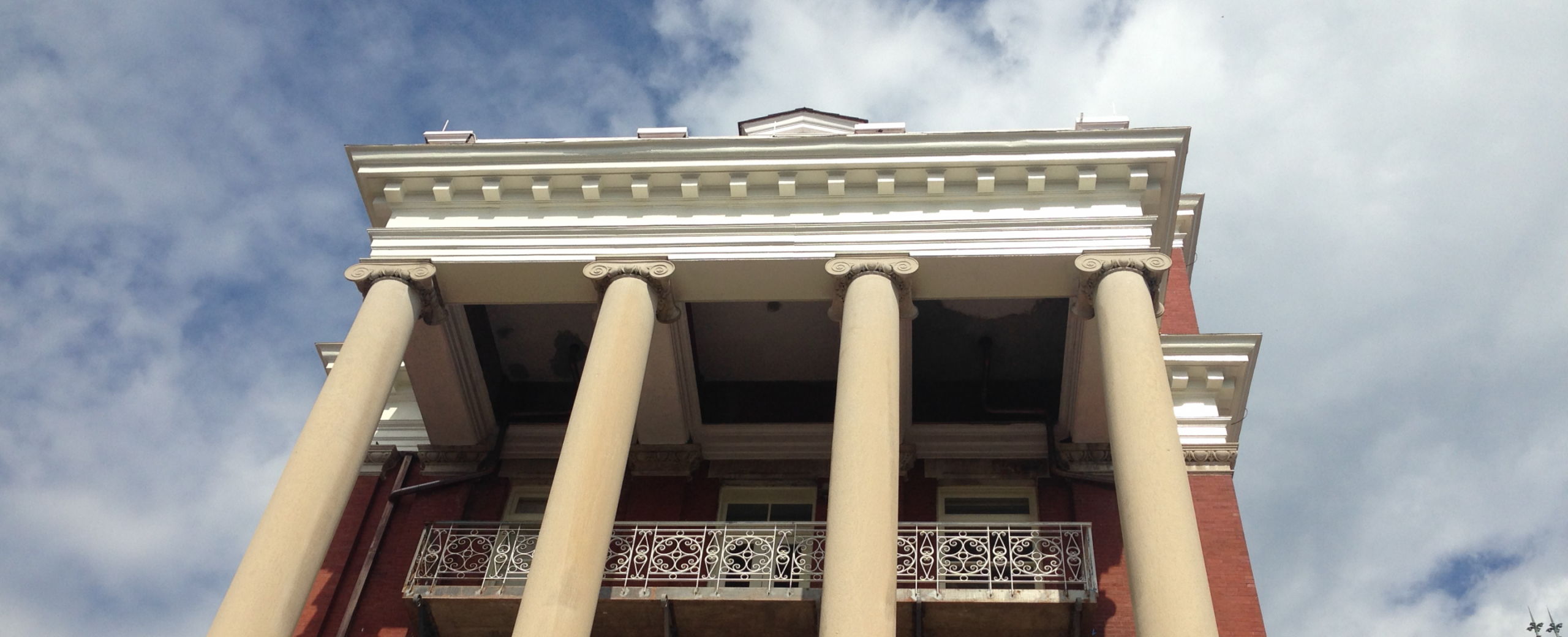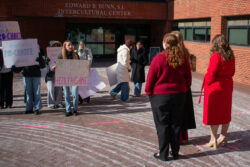On Dec. 1, Fr. David Collins, S.J., Ph.D, and Chair of the Georgetown Working Group on Slavery, Memory, and Reconciliation, announced a new university grant program, called the Freedom and Remembrance Grants, to encourage engagement with Georgetown’s historical involvement with slavery. Collins also unveiled two university events related to this history: a ceremonial renaming of Mulledy and McSherry Halls and an Emancipation Day symposium. The announcement occurred at the working group’s Teach-in in Gaston Hall.
The grants will provide up to 500 dollars to each recipient for projects that will deepen understanding of the history. “The Freedom and Remembrance Grants will support whatever you want to do that will help us as a community more deeply appropriate this chapter of our history and make it more properly our own, and look at its legacy,” said Collins.
These projects can be research-related, community and class events, or artistic expressions. Applications are available to students, faculty, and staff on the working group’s website. “Do not let a fear of a lack of resources in this process of remembering and learning how to remember inhibit you from working on this problem with us, for the sake of our whole community,” said Collins.
The President’s Office has also planned a ceremonial renaming of Mulledy and McSherry Halls on Dec. 11. The buildings were originally named after the former heads of then-Georgetown College who directed the sale of over 200 slaves owned by the Jesuits of Maryland. The renaming of the buildings was a key demand of protesters during the demonstration and sit-in that occurred on campus last month. The buildings will be temporarily renamed Freedom and Remembrance Halls until the working group decides on final titles. According to Collins, the new names will be associated with Georgetown’s history in the 19th century. He expects President John J. DeGioia to be present at the event.
Additionally, an Emancipation Day symposium is set to occur on April 18, in reference to April 16, 1862, the day that slaves were emancipated in Washington, D.C. “This would be the moment, hopefully, when the fruits of some of those Freedom and Remembrance Grants would redound to the benefit of the whole community,” Collins said.
Collins concluded the announcement and the teach-in with remarks on the complexity of the situation. “This is a messy history. Ours, Georgetown’s, is a complex history with light and shadow, one in which there are very few who are purely good, or I dare to imagine purely evil. We are not about an ahistorical application of contemporary standards to the past. Historians don’t do that. This is not about a hunt for scapegoats either, no matter how satisfying that can, in moments, be.”
Collins expressed that the goals of the process are lasting solutions, recognition, and reconciliation. “Let our conversation continue,” he said. “Let’s be what a university should be: a place of clear-eyed inquiry, and creativity, and dialogue. Let our conversation about our history and our present bring us to an authentic table of brotherhood.”





